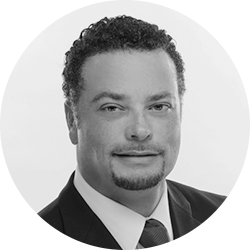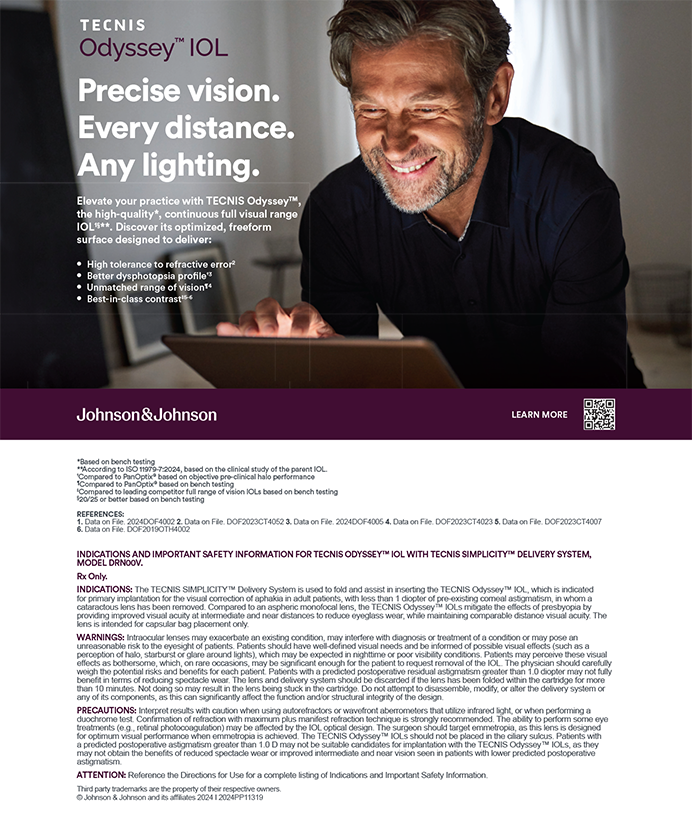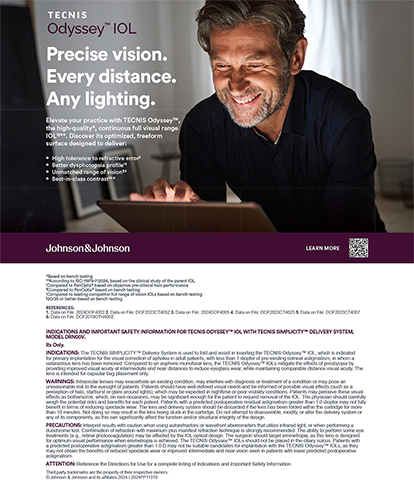
After practicing for 20 years, I have come to realize a few things about the premium IOL side of cataract surgery. There are many different types of surgeons and types of practices. There are many levers in a practice that help to turn the wheel of patients’ adoption of premium services. Discussing all of them would require a series of articles, not just one. In this article, I aim to focus on introspective self-analysis by the cataract surgeon honestly evaluating his or her role in the premium IOL surgical practice.
The first question every surgeon should ask himself or herself is, “Do I really want to do more premium cataract surgery?” Most surgeons will say yes, but some are genuinely and perfectly content performing a low percentage of premium cataract cases. Let’s be honest. Premium IOLs take more time, and they require a higher bar of success on our OR days. Further, premium patients are, in general, more demanding.
On the other hand, the benefits are obvious: achieving higher reimbursement; being perceived as a progressive, specialized, capable cataract surgeon by patients and colleagues; and elevating oneself into the realm of true refractive cataract surgery.
Battling Reduced Profitability
In the world of COVID-19, clinics are experiencing reduced profitability for many reasons. We have higher rates of cancellations and no-shows because patients are unwilling or reluctant to attend visits or schedule surgery.
Additionally, economic considerations now prevent some patients from upgrading to premium services. Our referring doctors are experiencing the same things; therefore, our referrals are down. These are just a few of the headwinds ophthalmologists face in maintaining economic viability.
BECAUSE OF versus IN SPITE OF
In this challenging environment, many surgeons are hoping to increase their premium IOL adoption rates to try to recoup some of the losses we have experienced. This is where some self-analysis can be helpful.
Are you a because of or an in spite of surgeon? Let me explain what I mean by that.
The because of surgeon. Are you the only reason that your practice does any premium lenses at all? Do you vigorously counsel your patients and educate them about astigmatism and the value of toric IOLs, only to be undermined by surgical schedulers who don’t see the value and feel guilty asking patients for out-of-pocket payment to elevate their outcomes? Do your technicians reinforce your message to patients about the value of IOLs that can reduce their need for reading glasses, or are you the sole champion of this message in your practice? The latter scenario can frequently be seen in academic settings or large multispecialty practices.
If you are the lone champion, then you are to be commended. For every patient who chooses advanced technology in your practice, this is truly happening because of the surgeon’s efforts, despite resistance elsewhere in the practice.
In such a practice, there is certainly room for growth, but it will require crucial conversations with key staff members and administrators. They need to support your message, not stifle it.
The in spite of surgeon. Conversely, are you a surgeon who is doing a reasonable number of premium procedures, but you never mention technology and don’t make strong recommendations for a certain type of vision correction—monovision, femtosecond laser, toric IOL, presbyopia-correcting IOL, etc—during patient consults? With the many options available today, this makes the job of the surgical counselor additionally challenging, without direction from the surgeon.
Are you a surgeon who takes time to educate staff about new technology, one who discusses the amazing success stories of patients with presbyopia-correcting IOLs in your practice on postoperative follow-up days? Or is it the staff members and counselors around you who are having these discussions, handing out brochures, and showing patients educational videos?
The in spite of surgeon likely has a support structure of education and follow-through in the practice. Patients are well-informed and decide to choose an advanced technology IOL even though their surgeon essentially does not discuss premium options at all. These surgeons may have some degree of success performing a modest number of premium procedures, despite their laissez-faire approach to counseling and education.
In this setting, there is much room for growth—but only if the surgeon commits to initiating more intentional discussion about premium cataract surgical options and making confident recommendations for advanced technology IOLs.
WHICH ARE YOU?
So, are you a because of or an in spite of surgeon? Or a little bit of both? The first step toward increasing your premium cataract procedures is to assess where the resistance is in your practice. Is it around you, or does it start with you? Only after answering this question can you address the process of moving the needle toward higher adoption rates for premium IOL technology in your practice.




